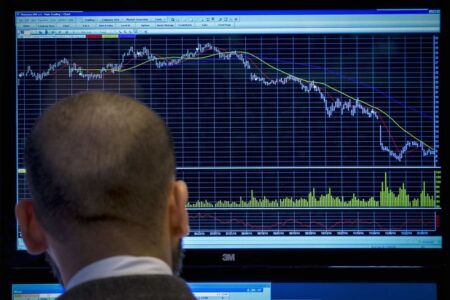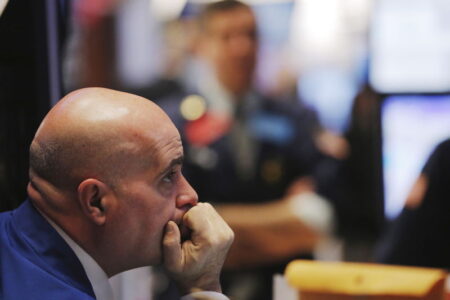© Reuters. FILE PHOTO: A depiction of the Australian Aboriginal Flag is seen on a window sill at the home of indigenous Muruwari elder Rita Wright, a member of the “Stolen Generations”, in Sydney, Australia, January 19, 2021. Picture taken January 19, 2021. REUTERS/
2/2
By Byron Kaye, Melanie Burton and Praveen Menon
SYDNEY (Reuters) – Some of Australia’s biggest companies, including miners, banks and retailers, are emerging as powerful sources of support for a campaign to recognise the country’s Indigenous people in the constitution, a development that could sway the outcome of a referendum later this year.
The advocacy of BHP, Rio Tinto (NYSE:), Woodside (OTC:) Energy, Commonwealth Bank of Australia (OTC:) and others helps Prime Minister Anthony Albanese, whose center-left Labor government backs the change, and puts the opposition conservatives, who are urging a “No” vote, at odds with sections of their traditional base.
The referendum, which comes amid a wider reckoning over race relations, proposes to change the constitution and establish an advisory body called the Indigenous Voice to Parliament to give Indigenous Australians a direct say in policies that affect them.
An exclusive Reuters poll of Australia’s 30 largest listed companies conducted in May and June found that seven of the top 10, with a combined market value of A$830 billion ($552.1 billion), endorsed the proposal. Five of those polled were funding or planned to fund the “Yes” campaign, while none endorsed nor were contributing to “No”.
“The referendum as a whole will obviously depend on multiple factors but money will have a significant amount of influence” on the outcome, said Intifar Chowdhury, associate lecturer at Australian National University’s school of politics and international relations.
Indigenous Australians, who account for 3.8% of the population, face disadvantages including discrimination, poor health and education outcomes and high incarceration rates.
Supporters say the Voice would help heal the wounds dating back to colonisation. Albanese, who did not respond to a Reuters request for comment, said in March that “consultation through the Voice is about strengthening parliament’s understanding, not supplanting its authority”.
Opponents, including some Indigenous people, have said the proposal lacks detail and will divide Australians.
Support for the referendum, likely to be held between October and December, appears to be ebbing. A poll published by Nine Entertainment this week showed “No” ahead for the first time, 51% to 49%.
DELICATE ISSUE
With the “Yes” camp under pressure to better articulate how the Voice would work, analysts say that as the campaign gathers pace the backing of business could help the referendum’s chances.
Still, some big firms have been embroiled in disputes with Indigenous people, such as in Western Australia, where traditional owners have complained of potential damage to sacred rock art caused by fossil-fuel projects involving Woodside. The company has said that research on the impact of emissions on the rock art, which Australia’s government has nominated for a World Heritage listing, has not been conclusive.
Woodside CEO Meg O’Neill said in April that the Voice would be a “step forward in reconciliation”. The company told Reuters it had invited Indigenous leaders to address employees about the proposal, a similar approach to other poll respondents.
Commonwealth Bank told Reuters it plans to fund the “Yes” campaign and had hosted two panel discussions with Indigenous speakers.
Corporate backing for the Voice reflects an emphasis on environmental, social, and governance considerations, also evident in businesses’ support for same-sex marriage in a 2017 plebiscite.
People are favouring investments that “deliver positive outcomes for society”, said Ross Piper, CEO of superannuation at Australian Ethical Investment. “For corporates, this is a moment that probably surpasses the political lines and divides.”
Campaigners hope companies engage in more-visible advocacy, such as Qantas emblazoning “Yes” on planes, the Australian Financial Review reported. The airline, which is not a top 30 company, supports the Voice but declined to comment on its plans.
At law firm Baker McKenzie, staff in Sydney recently attended an information session hosted by Indigenous leader Thomas Mayo, to which Reuters was invited. “On significant human rights issues we’re not neutral, and so this is something that we want to support,” said Kate Gillingham, a partner at the firm.
Opponents have pushed back. Peter Dutton, leader of the opposition Liberal party, who did not respond to a request for comment, said in April that companies were “craving popularity on social media by signing up to every social cause”.CAMPAIGN RAMP-UP Thirteen of the firms Reuters polled supported the constitutional change, including two of the top employers, retail conglomerate Wesfarmers and grocer Coles. About half declined to state a position because they had not finalised a stance or did not see it as their role to participate in politics.
Voice supporters have raised tens of millions of dollars and plan to ramp up campaigning in coming weeks. The money will pay for TV and social media advertising, as well as banners, merchandise and on-the-ground campaign efforts through community events, a “Yes23” campaign spokesperson told Reuters.
A spokesperson for Fair Australia, the group leading the “No” campaign, said shareholders “should be asking why directors are wasting their money campaigning to divide Australia by race”.
“Fortunately, this referendum will not be decided by listed companies, their directors or the millions they are pumping into the flailing Yes campaign,” the spokesperson added.
Changing the constitution requires majorities nationwide and in four of six states — a threshold Australia has achieved eight times in 44 attempts. Surveys show weaker support in the mining states of Queensland and Western Australia.
Miners, among the biggest employers of Indigenous Australians and also among industries most exposed to tension over land use, were the most split in responses to Reuters’ poll.
BHP and Rio Tinto said they have supported the Voice concept since 2019. Fortescue Metals and Newcrest said they have not taken a position.
Rio Tinto, which faced criticism in 2020 for destroying Indigenous rock shelters, said the Voice would bring an “additional lens” to government decision-making.
Aurora Milroy, a lecturer in Indigenous affairs at the University of Western Australia, said supporting the Voice was easy publicity for companies. “While a level of scepticism is necessary when assessing public pronouncements on the Voice,” she said, “at a practical level these statements can be influential.”
($1 = 1.5033 Australian dollars)
Read the full article here












